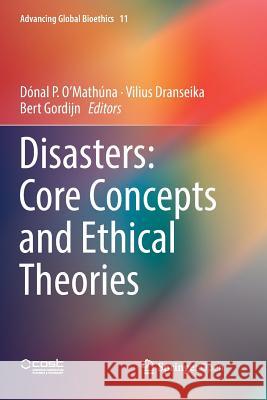Disasters: Core Concepts and Ethical Theories » książka
topmenu
Disasters: Core Concepts and Ethical Theories
ISBN-13: 9783030065010 / Angielski / Miękka / 2018 / 244 str.
Kategorie BISAC:
Wydawca:
Springer
Seria wydawnicza:
Język:
Angielski
ISBN-13:
9783030065010
Rok wydania:
2018
Wydanie:
Softcover Repri
Numer serii:
000478406
Ilość stron:
244
Waga:
0.36 kg
Wymiary:
23.39 x 15.6 x 1.37
Oprawa:
Miękka
Wolumenów:
01
Dodatkowe informacje:
Wydanie ilustrowane











